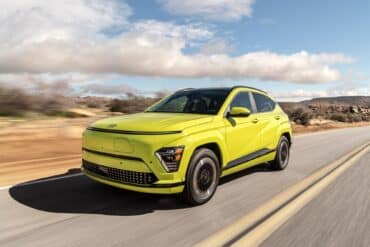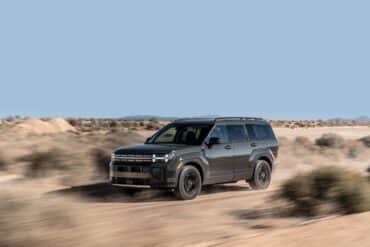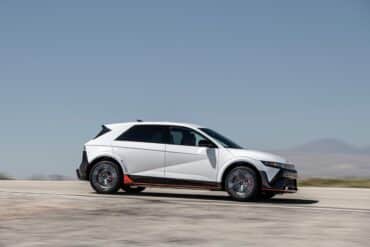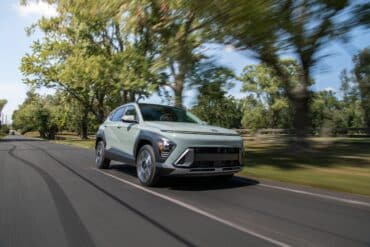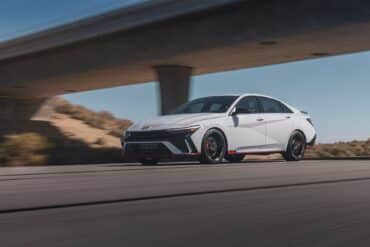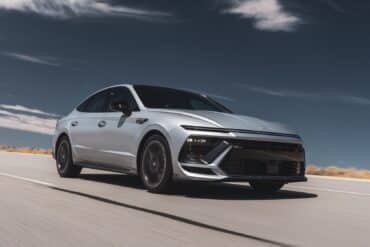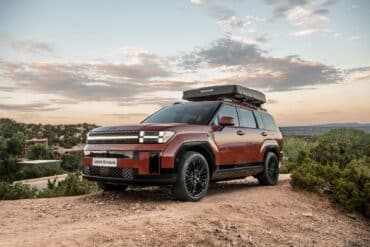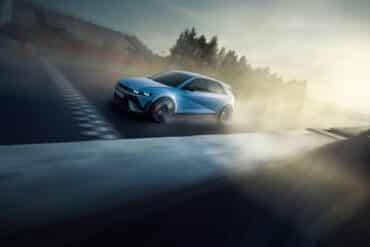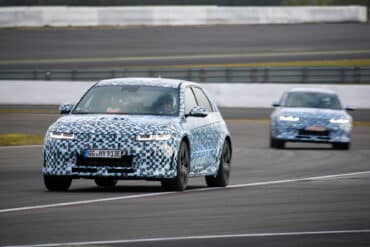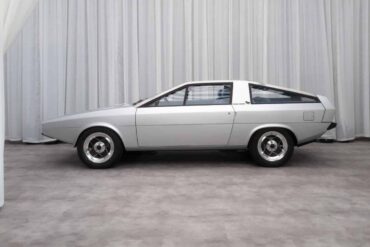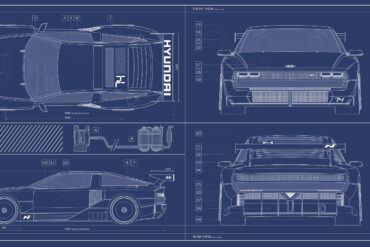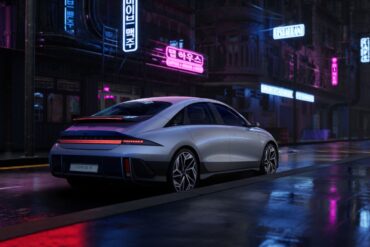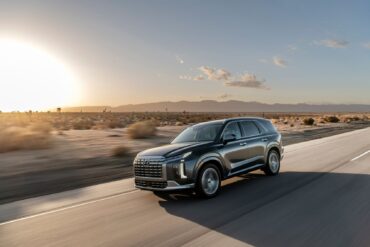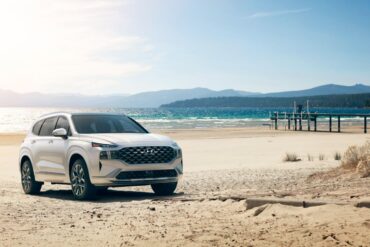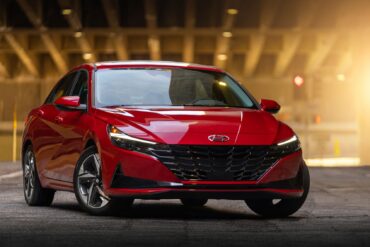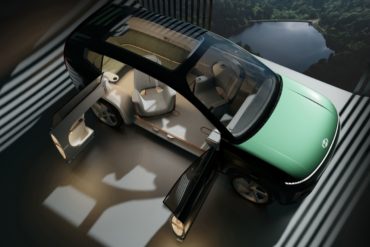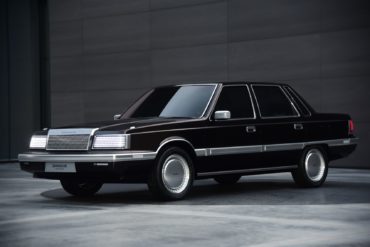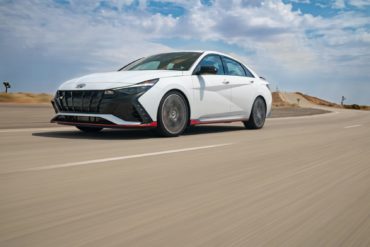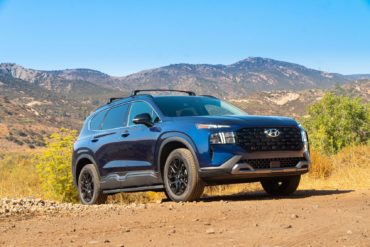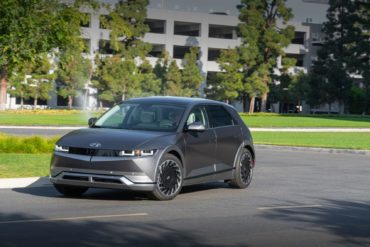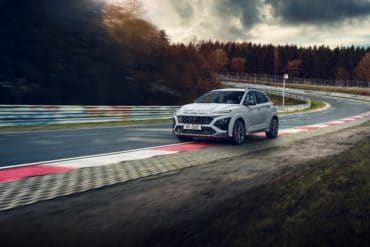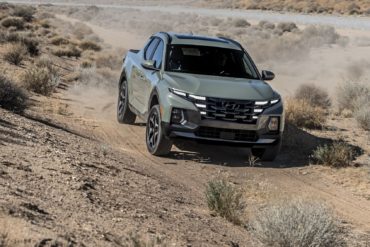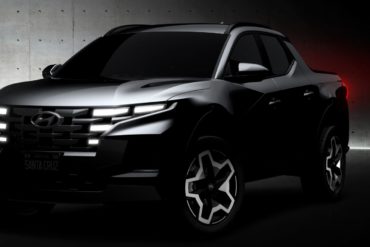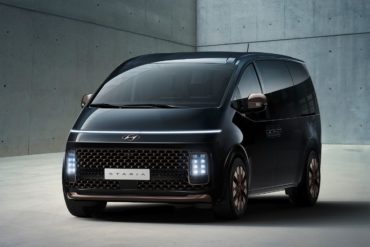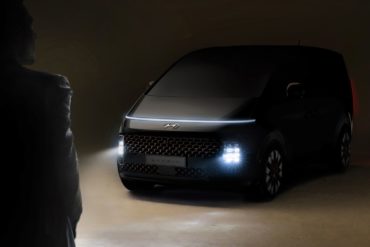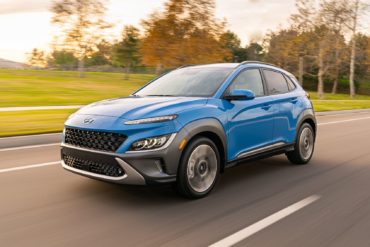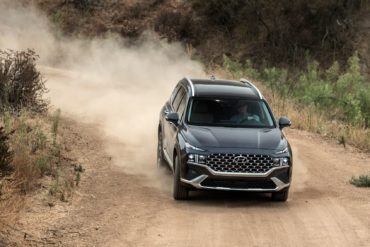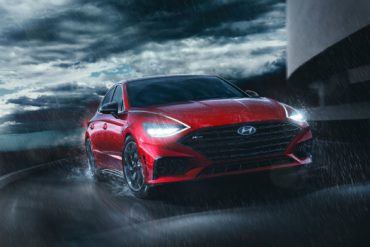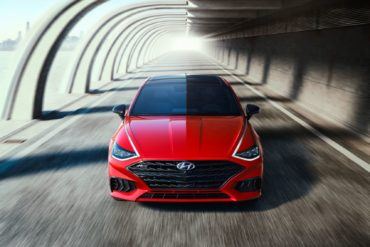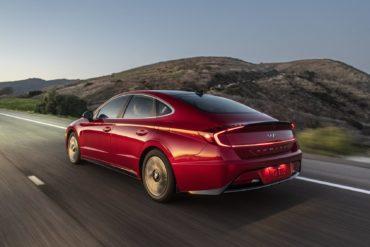The 2024 Hyundai Kona Electric, the second-gen variant of Hyundai’s popular compact SUV, leads the brand’s charge in the affordable EV category.
Hyundai
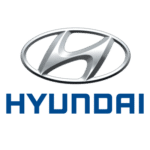
In addition to mainstays like the Elantra and Sonata, Hyundai also has a strong lineup of SUVs and crossovers. The smaller Venue is ideal for value-focused shoppers, while the larger Palisade offers a luxurious environment for up to eight passengers.
Hybrid and electric vehicles are a strong point for Hyundai as well, with the Ioniq, Sonata, and Kona each having the option for alternative powertrains.
The 2024 Hyundai Santa Fe made an official splash at Automobility LA 2023, the much-awaited fifth-generation model of the South...
We got a solid first glimpse of the Hyundai Ioniq 5 N at the 2023 Goodwood Festival of Speed, and...
2024 Hyundai Kona: Next-Generation Styling, More Interior Space, Cool N-Line Variant & Starting MSRP
The 2024 Hyundai Kona kicks off the second-gen variant of the South Korean automaker’s loveable compact crossover. The lineup consists...
2024 Hyundai Elantra Debuts With Refreshed Styling, Updated Safety Features, New N Trim Level & More
The 2024 Hyundai Elantra has brought a palpable air of excitement to the once-popular compact sedan segment. Credit goes to...
The 2024 Hyundai Sonata is an underrated midsize sedan that deserves equal billing with its Japanese contemporaries like the Honda...
Update 11-28-23: More information on the 2024 Hyundai Santa Fe was revealed during the 2023 Los Angeles Auto Show. South Korean auto...
South Korean automaker Hyundai and its high-performance N division unveiled their first electric car, the Ioniq 5 N, at the...
Update 07-13-2023: The Hyundai Ioniq 5 N premiered at the 2023 Goodwood Festival of Speed in West Sussex, England, since the...
The Hyundai Motor Company was born in 1967, but its first car wasn’t a Hyundai but a Ford Cortina. Seven...
It’s incredible to witness Hyundai’s growth in the North American auto sector. The South Korean giant recently debuted its Ioniq...
Hyundai lifted the curtains off its newest electric car, the Ioniq 6 sedan, the second EV in the South Korean...
The 2023 Hyundai Palisade made its first appearance at the 2022 New York International Auto Show. Hyundai’s flagship seven-seat family...
The 2022 Hyundai Santa Fe remains a solid choice if you are shopping for a five-seat, midsize crossover. The Santa...
Fresh from a major redesign last year, the 2022 Hyundai Elantra recently bagged the North American Car of the Year...
The Hyundai Seven Concept left a lasting impression at AutoMobility LA 2021. Dubbed as Hyundai’s sport utility electric vehicle (SUEV),...
The year was 1986. Halley’s Comet returned to our solar system, Argentina won the World Cup, the Rock and Roll...
After a lengthy gestation period, the 2022 Hyundai Elantra N finally made its North American debut. The new Elantra N...
The 2022 Hyundai Santa Fe XRT is a little more rugged and stylish than the average Santa Fe. If you...
Video Description Hyundai has released the highlight video of its IONIQ 5 premiere. The 2022 IONIQ 5 rides on Hyundai’s...
Hyundai spent the first few months of 2021 teasing its newest Kona N high-performance crossover. The beans were recently spilled...
The 2022 Hyundai Santa Cruz is a long time coming. First seen as the Santa Cruz Concept at the 2015...
Ahead of its debut on April 15th, Hyundai has released this teaser video of the new Santa Cruz. The video...
The Hyundai STARIA will make its full debut later this year, but Hyundai has shared some pictures with us ahead...
Hyundai and Kia have been revealing teaser images left and right these days. First, it was Kia with the EV6, then...
2022 Hyundai Kona: Quirky Crossover Receives N Line Trim, Updated Styling & New Convenience Features
After months of teasing and speculations, the 2022 Hyundai Kona has finally arrived. The newest Kona is home to a...
Two years after unleashing the fourth-generation Santa Fe, Hyundai has given its popular midsize SUV a new face, a slew...
When you think about it, the 2021 Hyundai Sonata N Line makes a compelling argument for a performance-oriented family sedan....
They say variety is the spice of life. And the 2021 Hyundai Sonata N Line is all about that spice....
Hyundai continues to impress with new SUVs and upgrades for its current models. The Sonata is one of the oldest nameplates in...

